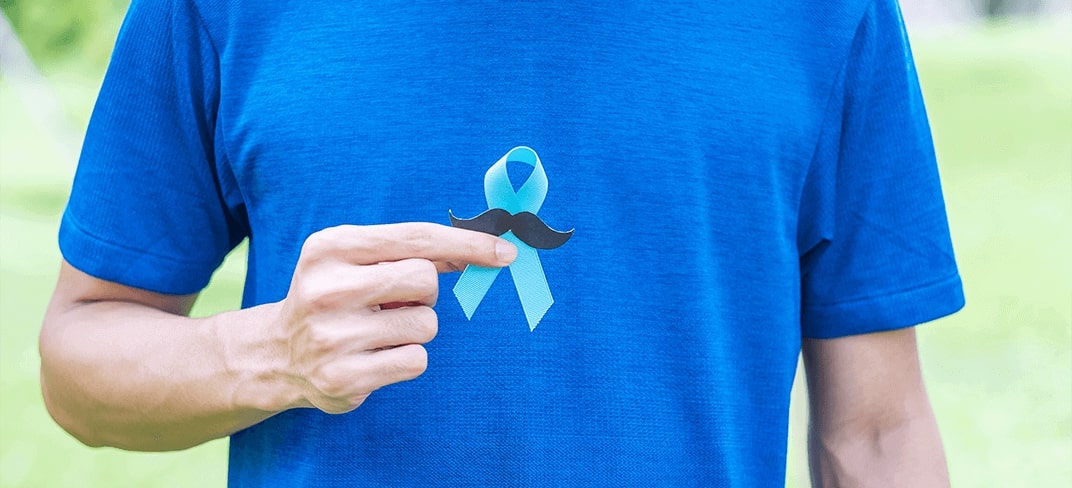Test Your Knowledge on Men's Health Issues

As an adult male, you know that keeping yourself healthy means getting annual check-ups, exercising regularly, and limiting the amount of caffeine and alcohol you drink.
Take a look at the questions below and test your knowledge.
Prostate cancer may be treated by active surveillance instead of surgery or radiation. True or false?
TRUE
Some prostate cancers grow so slowly that doctors may recommend active surveillance — or watchful waiting — and managing your symptoms instead of surgery or radiation. Here's why: It may take years for the cancer to cause any problems. And in some cases, the side effects of the treatment are worse than the cancer symptoms.
Watchful waiting means that you'll have regular checkups and tests such as biopsies or blood work — but your doctor will only treat the cancer if it gets worse.
If you are over 80 years old or have other serious health problems, your doctor may recommend watchful waiting instead of treatment while managing your symptoms.
Prostate cancer doesn’t run in my family, so I don’t need to worry about it. True or false?
FALSE
While family history of prostate cancer increases your chances of developing prostate cancer, age is the largest risk factor. Prostate cancer usually affects men over 50 years of age. Nearly two in every three prostate cancers are diagnosed in men over 65.
Having a risk factor doesn’t mean you will get cancer. Very often people with no risk factors get the disease. If you’re worried, talk to your GP and always be mindful of what you can do to reduce your risk, such as being a healthy weight, eating a healthy diet, being physically active and knowing your family history.
Peeing many times during the night happens because you drink too many fluids before bedtime. True or false?
FALSE
While drinking too many fluids (especially those containing alcohol and caffeine) can cause you to wake during the night to pee, very frequent urination may be a sign of other underlying conditions or problems. Nocturia is a condition that causes you to wake up during the night to pee.
Nocturia becomes more common as people age (usually older than 60) and occurs in all genders and sexes, sometimes for different reasons. Typically, you should be able to sleep six to eight hours during the night without having to get up to go to the bathroom. But, people who have nocturia wake up more than once a night to urinate. This can cause disruptions in your normal sleep cycle, and leave you tired and with less energy during the day.
Contact your GP if you’re waking up several times each night to use the toilet. You might find that some lifestyle changes will make a big difference, or you may need medication, especially if an underlying bladder or prostate issue is the cause. Fortunately, most cases of nocturia are very treatable.
Erectile dysfunction (ED) is a normal part of ageing. True or false?
FALSE
There are many causes of erectile dysfunction (ED) — but getting older isn't one of them. However, frequent ED is almost always a red flag that something else is wrong. Diabetes, high blood pressure, and heart disease can all lead to chronic erection problems.
While occasional ED is normal at any age, chronic ED requires medical attention so make an appointment with your GP.
Medicine is the only way to treat erectile dysfunction. True or false?
FALSE
When it comes to treating erectile dysfunction, most men think of prescription drugs. But there are other ways to treat ED. First, your GP will want to figure out the underlying cause.
Stress, relationship problems, and other psychological issues can trigger ED. In these cases, counselling can help.
The root cause also may be high blood pressure, diabetes, or another medical issue. Your doctor may recommend that you make lifestyle changes — lose weight, start exercising, or quit smoking — before prescribing medicine.
If lifestyle changes and medicines don't work, your GP may suggest other ED treatments or refer you to a consultant urologist.
Men can get breast cancer. True or false?
TRUE
While breast cancer is more common in women, the disease strikes men too. There's no screening for male breast cancer, so call your doctor if you feel a lump on your chest or armpit. Even though breast cancer in men is rare, it usually becomes visible at a more advanced stage.
Bladder leakages only effect women. True or false?
FALSE
Men and women can suffer from urinary incontinence (bladder leakages).
For men there are three different types of incontinence. These are overflow incontinence (where the bladders pressure sensing aspect is compromised), urge incontinence (due to muscle spasms in the bladder), or stress incontinence (arising from damage to the nerve supply or muscle structures of the urinary sphincter, often as a result of prostate surgery).
Always seek medical advice if you are suffering from bladder leakages and remember that physiotherapists can give you tailored exercise plans to strengthen your pelvic floor muscles and minimise leakages.
For more information about your urological health, visit Urology Services at UPMC Ireland.